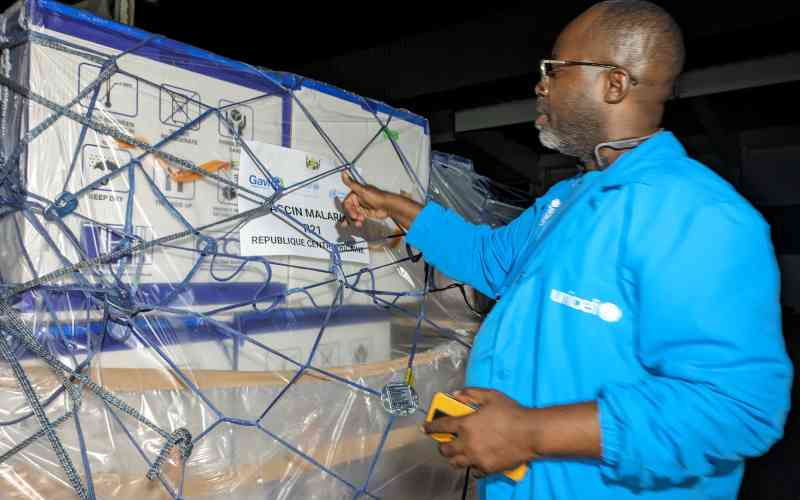×
The Standard e-Paper
Home To Bold Columnists

A shipment of the newest malaria vaccine, R21, is unloaded at the airport in Bangui On 24 May 2024. [UNICEF]
A new malaria vaccine, R21, promises to bolster the fight against the disease in infants across Africa.